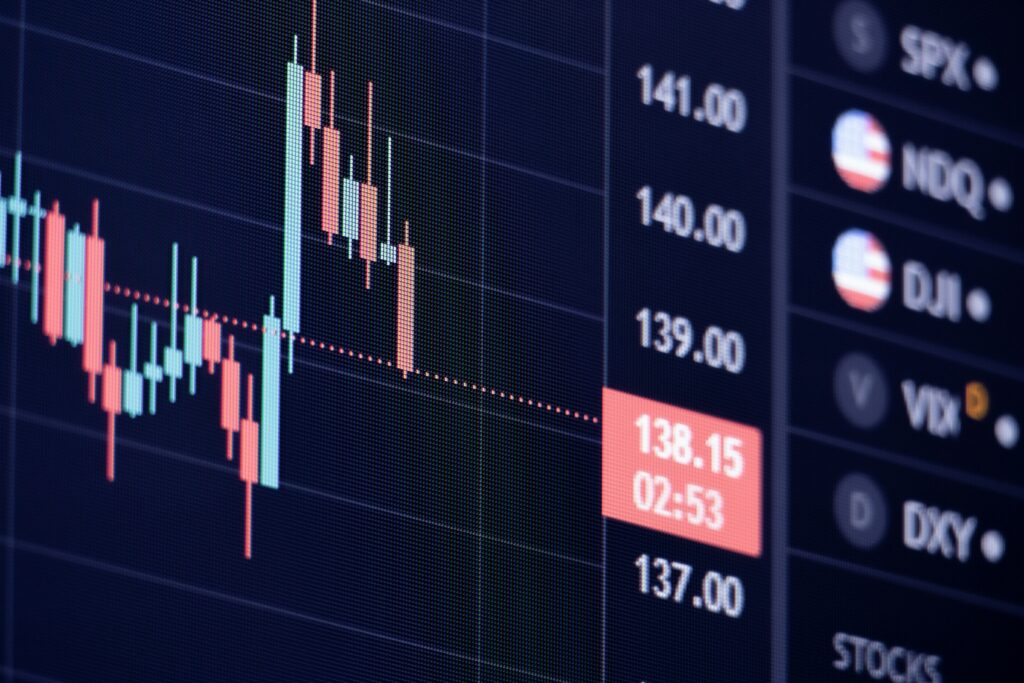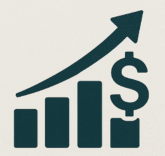
Have you ever heard the term “the Dow” on the news or in financial apps? It’s one of the most talked-about numbers in finance — but what exactly is it, and why does it matter to you?
Whether you’re completely new to investing or just want a straightforward explanation, here’s everything you need to know about:
- What the Dow Jones Industrial Average (DJIA) really is
- How it works and why it’s still a big deal
- Which companies are in it and how it impacts the economy
- Why both investors and everyday people keep an eye on it
Let’s dive in!
What Is the Dow Jones Industrial Average?
- The Dow Jones Industrial Average (DJIA) is a stock market index tracking 30 large, influential U.S. companies.
- Originally focused on industrial firms, it now includes sectors like technology, healthcare, finance, retail, and more.
- Think of it as a health check for the U.S. economy, reflecting how these big companies’ stock prices move.
- When you hear “the market is up today,” it often means the Dow went up.
A Quick History: How the Dow Got Started

- Created in 1896 by Charles Dow and Edward Jones.
- Started with 12 companies from railroads, oil, and gas sectors.
- Expanded to 20 companies in 1916, then 30 in 1928 — the number we have today.
- Has evolved through wars, economic crashes, and tech revolutions.
- Companies like Coca-Cola and Procter & Gamble joined during major economic shifts.
How Is the Dow Calculated?
- The Dow is price-weighted, meaning companies with higher stock prices impact the Dow more.
- Calculation steps:
- Add up the stock prices of all 30 companies.
- Divide by the Dow Divisor — a number adjusted for stock splits and changes.
- This is different from other indices like the S&P 500, which weight companies by market capitalization (company size).
Who’s in the Dow? The 30 Big Players
The Dow includes major blue-chip companies across sectors like:
- Technology: Apple, Microsoft, Salesforce
- Finance: Goldman Sachs, JPMorgan Chase
- Healthcare: UnitedHealth Group
- Consumer Goods: Coca-Cola, Procter & Gamble, McDonald’s
- Retail: Walmart, Home Depot
- Industrial: Boeing, 3M
Why Does the Dow Matter?
- Market Barometer: Reflects investor sentiment and market trends.
- Economic Indicator: Used by policymakers and economists to gauge economic health.
- Global Influence: Moves in the Dow can impact markets worldwide.
- Public Awareness: Its long history makes it a go-to number for quick financial news updates.
Criticisms of the Dow
- Price-Weighted Bias: Stocks with higher prices affect the index more, regardless of company size.
- Limited Scope: Only 30 companies, so it doesn’t show the whole market picture.
- Sector Representation: Some industries might be over- or under-represented.
For a broader market view, investors often also watch the S&P 500 or Nasdaq Composite.
How Investors Use the Dow

- Benchmarking: Compare portfolio performance against the Dow.
- Trading: Use Dow futures or ETFs (like SPDR Dow Jones Industrial Average ETF — ticker DIA).
- Sentiment Gauge: Daily ups and downs signal market optimism or fear.
Key Milestones the Dow Has Seen
- 1929 Great Depression: Crashed nearly 90%.
- Post-WWII Boom: Steady growth.
- 2000 Dot-Com Bubble: Major tech crash impact.
- 2008 Financial Crisis: Sharp plunge and recovery.
- 2020 COVID-19 Pandemic: Record volatility and rebounds.
How Can You Track or Invest in the Dow?
- Track via financial news, stock market apps, or websites like Yahoo Finance.
- Invest indirectly through:
- ETFs that follow the Dow (e.g., DIA).
- Buying individual stocks within the Dow.
Bonus: What Is Dow Theory?
- Developed by Charles Dow, it’s a set of principles about market trends.
- Forms the basis for technical analysis used by many traders today.
FAQ: Quick Answers
Q: Is the Dow the best measure of the stock market?
A: It’s historic and popular but limited in scope. The S&P 500 offers a broader market view.
Q: Why do companies get added or removed from the Dow?
A: To keep the index representative of the leading sectors and companies in the U.S.
Q: How does the Dow differ from the S&P 500?
A: The Dow tracks 30 companies’ price-weighted; the S&P 500 tracks 500 companies weighted by market cap.
Why the Dow Still Matters — and Why You Should Care
The Dow Jones Industrial Average is more than just a number — it’s a window into the heartbeat of the U.S. economy. Whether you’re investing or just curious about the market, understanding the Dow helps you decode daily financial headlines and see how big companies shape the economy.
Ready to Dive Deeper?
Start tracking the Dow today and see how it reflects the economy’s ups and downs. Use your favorite financial app or news site to stay in the loop — and if you want to invest, consider Dow ETFs or some of the top companies it tracks.
